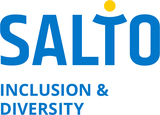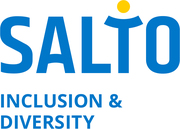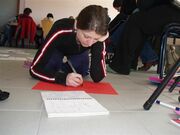Follow Up after inclusion projects
- Add your own suggestions or experiences with follow up at the bottom of this page (log in with your SALTO username or create one)
Let's start with a strong statement: 'When you plan to do this kind of projects with this target group without follow-up.....don't do the project'.
A Youth Exchange, a Youth Initiative project or a European Voluntary Service project are not just single one-time events. They should be part of a whole. One of the main characteristics of these projects is that they are an intense and powerful experience with a lot of impact on the young people involved. That needs a good preparation but also needs a well planned follow-up. Coming home after an international project without having any possibility to do something with your experiences and new perspectives makes the project worthless and puts the young people probably deeper into his/her problems as before.
We have already made reference to the necessity of re-integration support. The rebuilt motivation, the new ideas and energy and the new, during the project developed, skills need to be taken up and transferred into action plans. That process needs to be facilitated in an intensive way by youth workers, social workers or other supervisors. In other words: When an organisation sends a European Voluntary Service volunteer it needs to plan time for when the volunteer comes back. The last day of a Youth Exchange is not the end of your working with the group.
Don't let the project end as a one time experience but let it be the beginning of a new road ahead.
^^ top ^^
Case Study: Johann
Johann was in prison for petty crimes and was introduced to his home organisation by his probation officer, who attended one of our promotional afternoons. Johann was inspired by a host project in Sweden who offered him a project working with music, dance and sport. The project inspired Johann to look into European Voluntary Service further and consider a second project maybe even for a longer period. Recently Johann was invited to join a member of the staff from his sending organisation to visit one of the prisons in Estonia which has also been active in the Youth in Action programme. Johann attended this event and a rap song he wrote promoting European Voluntary Service was included in this event.
After returning from this event Johann has begun work with three friends on a group initiatives project for which they were awarded €7,000 where the group will set up a basement recording studio aimed at young people at risk of offending. The studio will encourage young people to learn about rapping & making music videos and will also give them chance to see themselves on TV maybe, for the first time in a positive light.
Johann's quote which remains with us from this programme is "If I knew there was something like this for me when I was 16 I would never have ended up in prison, I want to offer young people from my community the things we never had when we were kids that way maybe they won't get into trouble."
- Add your own suggestions or experiences with follow up at the bottom of this page (log in with your SALTO username or create one)
^^ top ^^
Follow-up can also be put in practice within the Youth in Action programme. More and more organisations follow this 'pathway approach' in which different elements of the Youth in Action programme are used for a young people. Starting for instance in a local Youth Initiative and to follow that up by doing a Youth Exchange. Or doing a short term European Voluntary Service after having been involved in a Youth Exchange.
The Youth in Action programmes offers a variety of opportunities that can have an especially strong motivational element in the process of the guidance of these young people.
But this is one way of a 'pathway approach'.
In the line of working with young (ex-)offenders and those at risk of offending, let us make a plea for using the Youth in Action programme as a tool into their personal pathway.
For some young people, living abroad in a new culture can be a de-stabilizing and confusing experience. Sending a young person on an international project as a substitute for a holiday or as a stop-gap solution can often do more harm than good. A young person can return home more de-stabilized than before they left. Such approaches are of little value to the individual or to their organisation.
Therefore, the follow-up phase could be called as the 'most important' phase in international project work.
- For more information on "the pathway approach" check "Use your hands to move ahead" to download from the SALTO website: www.salto-youth.net/UseYourHands/
^^ top ^^
Step by step - An example from Rome
In 2005, an 18 year old boy came to the CEMEA (Active Education Methods' Training Centres) office in Rome, accompanied by his mother. This is their story: " He had committed a crime and so his mother wanted to involve him in some social voluntary activities to keep him away from 'bad company'. They had seen some leaflets about European Voluntary Service and wanted to receive some further information.
This boy did not seem very interested in anything. It was very difficult to approach him and to communicate in general. He was greatly lacking self esteem but he behaved in exactly the opposite way, giving an appearance of strength and lack of motivation in what we were proposing.
At that moment, we were not aware of his background so we proposed him a long term European Voluntary Service as a first step. But, after the second appointment we realised that he did not feel ready for this. It was a too big step for him. He was lost, scared, did not feel confident at all... so we tried with short term European Voluntary Service and we got exactly the same result. For this reason, we thought about a Youth Exchange that was going to be held in Germany. Fortunately he decided to join it.
This Youth Exchange seemed to be a good solution for several reasons. It would be a very practical experience with concrete and visible results. This was no individual activity which would make him feel more confident. There would be a person to accompany him and it would last for only ten days. Another important advantage was that English was not needed.
During the preparation activities for the youth exchange we tried to give him a "leading role". For instance, some dinners were organised to create a group atmosphere and he chose the place to go in his area (the territory that he knew well and were he felt confident.) This was very important because he had many stereotypes and was not very open with people "different" from him. In fact, all the rest of participants were university students while he had left school very early...
The Youth Exchange was a big success and the first result arrived very soon. In fact, when he arrived in Italy, he asked his mother if he could go and live for some months with his aunt that lived in another area of a big city. In this way he could be further away of 'bad company'.
Then we involved him again by proposing him a group European Voluntary Service in Spain. His application form was approved but unfortunately, the Spanish National Agency did not approve the application form of the other 11 applicants that composed the group.
This created a big problem for us because the process so far had motivated him (he had found a job and was "behaving well"). So it was important to keep his motivation high. The Italian National Agency helped us to see, considering the specific case, if there was any possibility of making him participate in another project within the same organisation but it was not possible.
While we were dealing with this paper work, we decided to involve him anyway in a pre-departure training that we were organising for a group of Leonardo Da Vinci stagers.
The participants of this TC were all young people between 18 and 27 years old with a good level of studies and with experience as social animators. He felt very well integrated in the group and realised that most of them spoke at least 2 foreign languages, had already finished university and had many programmes and objectives in their lives. He found this all very motivating and the day after the training finished he enrolled to school.
After this, as he had not managed to participate to European Voluntary Service in Spain, we offered to apply for another European Voluntary Service short term project in France.
This time, the project was approved by both National Agencies and he departed for 3 weeks. He made a great project. He integrated very well, was always ready to give a hand, nice with colleagues, children and other volunteers. The hosting organisation even offered him the possibility to come back for a long term European Voluntary Service after he will have finished school.
So, now we will try to keep him involved in some of our local activities in which he will be a resource for other young people. Meanwhile he will try to get the diploma at school and then we will propose him again a project."
- Add your own suggestions or experiences with follow up at the bottom of this page (log in with your SALTO username or create one)
^^ top ^^
Downloads
The following downloads are available:
- No Offence - projects with (ex) offenders - 2010 update
How to organise (international) youth projects with young offenders, ex-offenders and young people at risk of offending or currently in prison - despite some limitations. Based on SALTO TC No Offence 2006.




